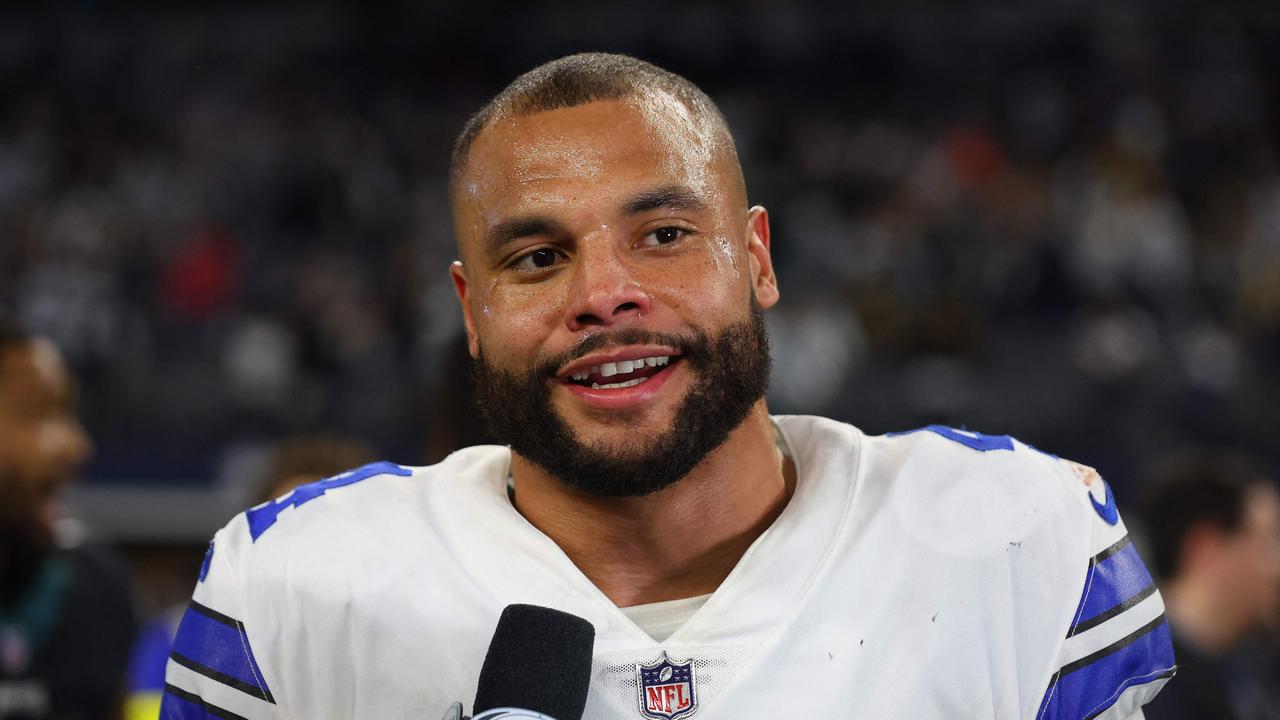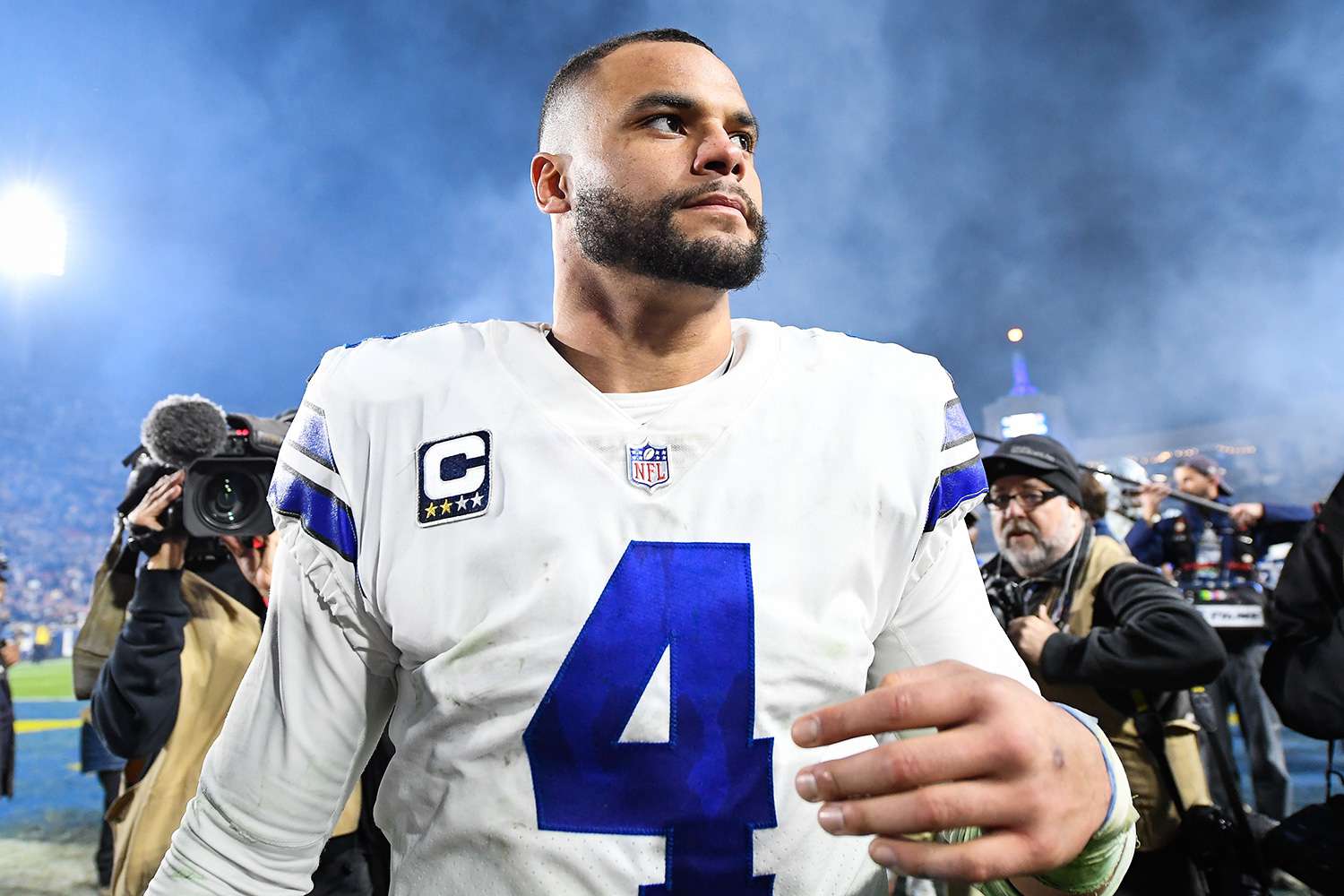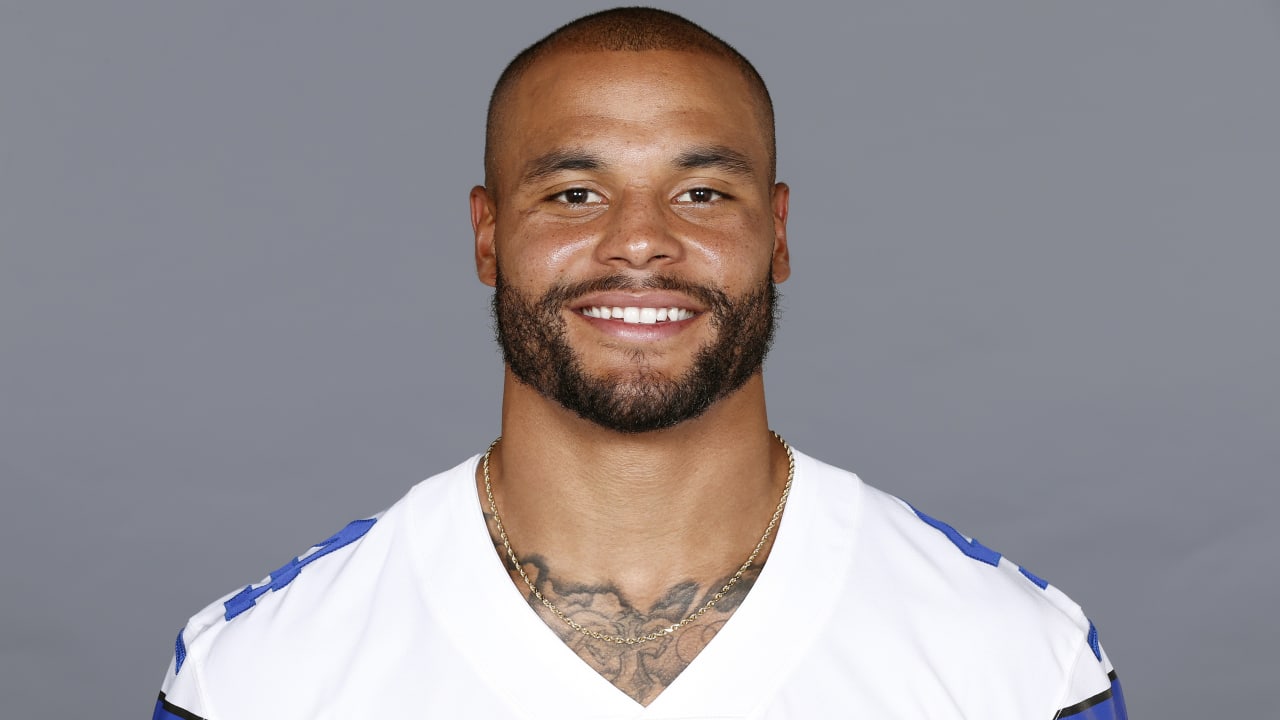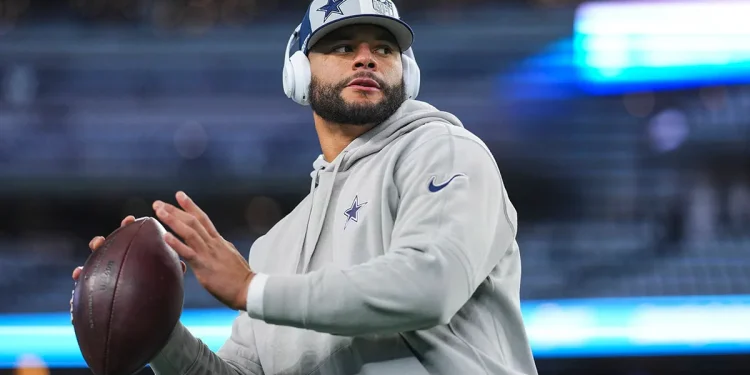In the competitive NFL arena, Dak Prescott’s name emerges at the forefront of discussions surrounding the ever-changing costs of securing top talent. The Dallas Cowboys, renowned in American football circles, face a financial conundrum underscoring the consequences of delaying contracts for star players.
This dilemma is further compounded by the recent landmark quarterback deal struck by the Detroit Lions, who penned Jared Goff to a colossal four-year, $212 million extension, a move reported by Adam Schefter. This development inevitably inflates Prescott’s market value, setting new benchmarks in quarterback valuations.

This recent contract adjustment positions Goff with an average annual salary (AAV) of $53 million, inching close to Joe Burrow’s league-leading $55 million AAV. Now, as the salaries of other elite quarterbacks like Justin Herbert, Lamar Jackson, and Jalen Hurts continue to climb, the Cowboys face an undeniable reality: the price to retain Prescott is surging, and the clock is ticking loudly.

Dak Prescott vs. Jared Goff
Prescott, just a year older than Goff, has consistently outperformed the Lions’ quarterback across several critical metrics including wins, completion percentage, yards per attempt, and quarterback rating. Specifically, Prescott’s stats from last season included a completion rate that led to more touchdowns and fewer interceptions than Goff, coupled with a significant advantage in rushing yards and overall quarterback rating—105.9 to Goff’s 97.9.
Such numbers not only boost Prescott’s bargaining power but also set a floor for his next contract. The narrative around Prescott’s value is clear: if Goff is worth $53 million annually, then Prescott, with superior performance metrics, justifiably merits a comparable, if not greater, figure.
Gisele was getting worked by her BJJ coach while Tom Brady was getting worked by Dak Prescott pic.twitter.com/4ofruggIIp
— Ernie The Cowboys Fan (@es3_09) May 14, 2024
Negotiation Leverage in a Spiraling Market
Previously, the Cowboys might have wielded some leverage by comparing Prescott with younger quarterbacks like Herbert, Jackson, and Hurts. However, Goff’s new deal, which reflects both market trends and the Lions’ urgency to secure their leading man, has shifted the landscape.
The chants of Goff’s name at the NFL Draft underscored his popularity and likely influenced the Lions’ decision to offer a premium on his contract, setting a precedent that Prescott’s camp is sure to reference during negotiations.

The situation encapsulates a broader theme in professional sports: the cost of indecision. Each delay in locking down a key player only inflates the eventual financial commitment required, a lesson the Cowboys are learning the hard way.
As the market for quarterbacks escalates, driven by record-setting deals and the ever-present competition for elite talent, Dallas must confront the financial ramifications of their strategic hesitations.
In conclusion, the Cowboys are at a critical juncture. With Prescott’s proven track record and the recent recalibration of quarterback worth, Dallas faces not only the challenge of matching Goff’s lucrative deal but potentially exceeding it to secure their franchise leader. As the stakes mount, the Cowboys’ next moves will be pivotal in shaping the team’s financial and competitive future in the high-stakes world of the NFL.










